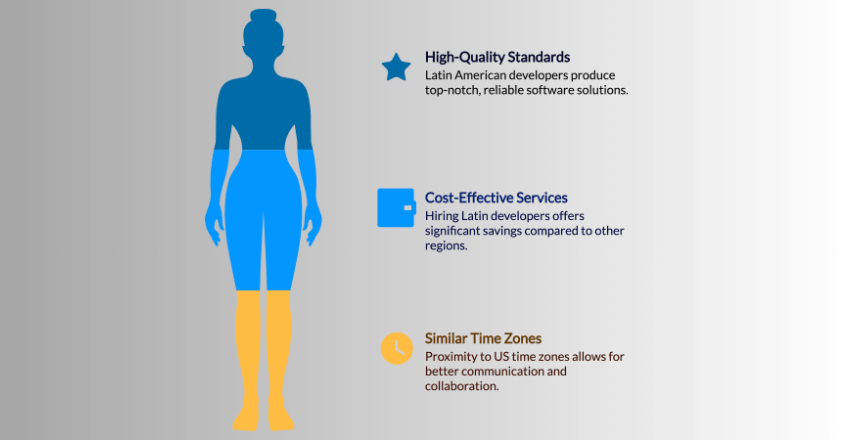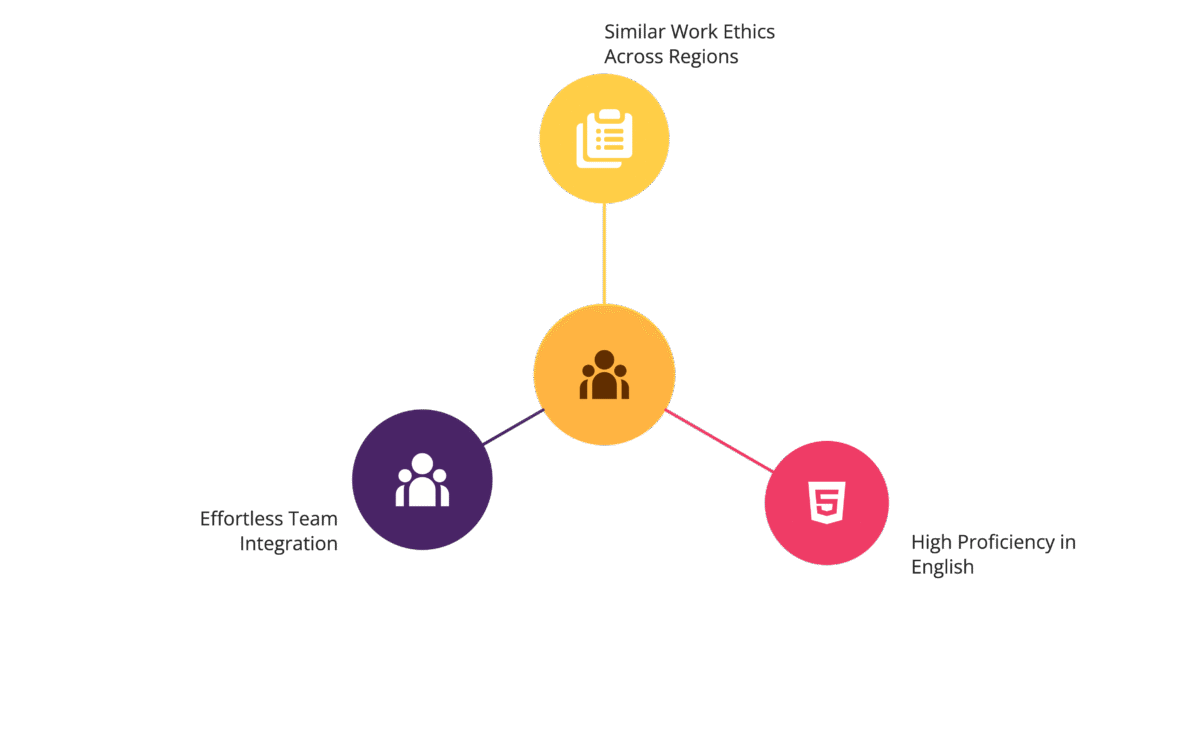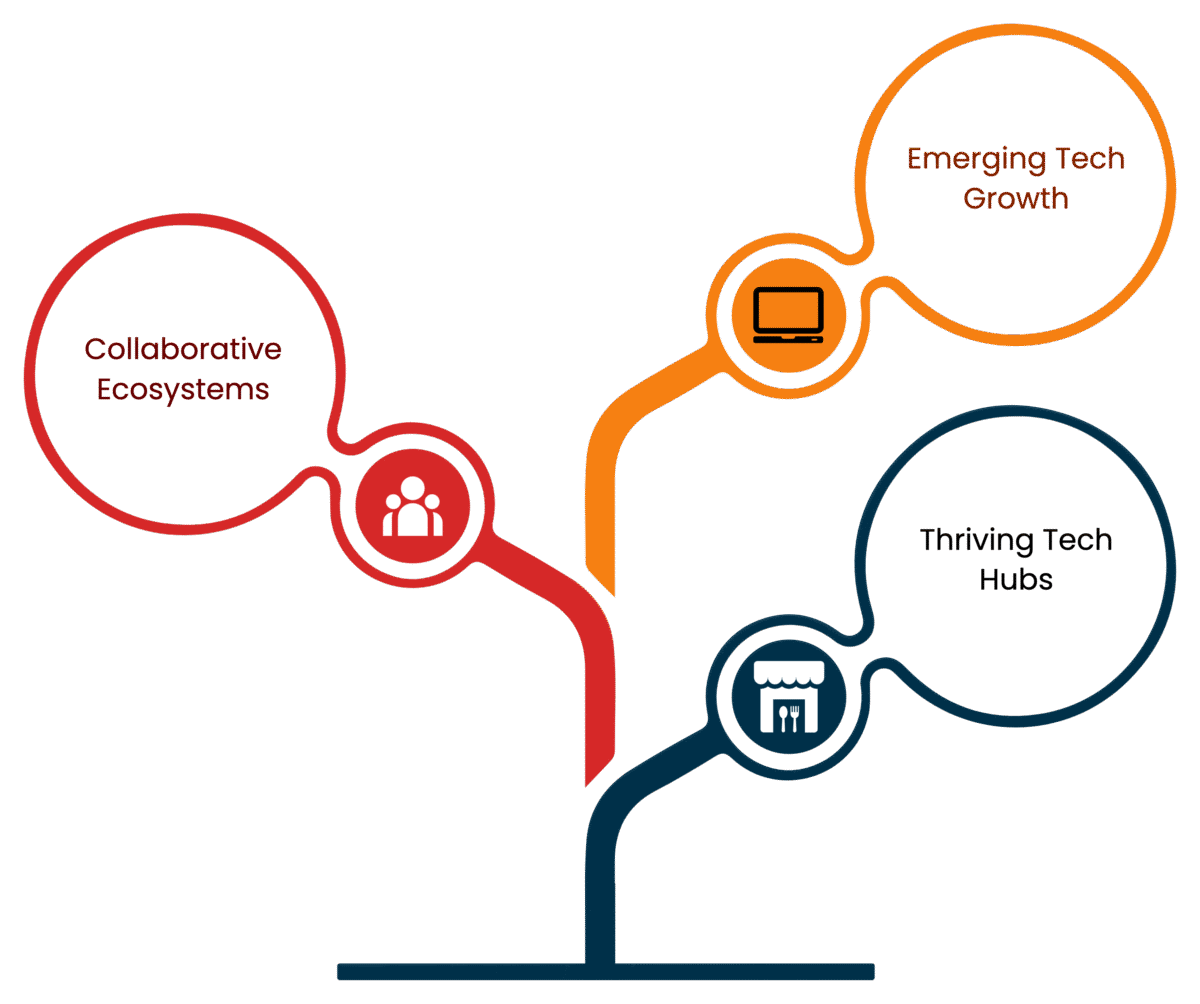
Why Latin American software developers are ideal for affordable and high-quality remote work
Latin American software developers offer an exceptional combination of technical expertise, cost-effectiveness, and cultural compatibility. Businesses seeking top-tier professionals find the region an excellent choice for expanding remote teams.
Thank you for reading this post, don't forget to subscribe!Key Takeaways
| Factor | Benefits |
|---|---|
| Proximity and Time Zones | Enhances real-time collaboration and productivity. |
| Technical Expertise | Access to a deep pool of skilled developers proficient in modern languages. |
| Cost-Effectiveness | Significant savings compared to North American or European hiring. |
| Cultural Compatibility | Facilitates smooth integration and effective communication. |
| Work Ethic | Known for dedication, reliability, and problem-solving. |
| Simplified Administration | Minimal legal barriers; streamlined payroll processes. |
| Regional Tech Ecosystems | Exposure to innovative ideas and networks. |
| Flexible Collaboration | Adapts to diverse project and team needs. |
| Long-Term Relationships | Low turnover rates ensure team stability. |
| Importance of Soft Skills | Enhances team dynamics and project outcomes. |
Proximity and Time Zone Alignment

Many Latin American countries operate in time zones close to the United States, making real-time collaboration seamless. Developers can attend meetings, respond to requests promptly, and maintain active communication during standard business hours.
Hiring talent from Latin America allowed us to improve project turnaround times. The overlap in working hours enhanced productivity and reduced delays.
This proximity fosters effective teamwork and minimizes the common challenges of working with offshore teams. Additionally, this alignment reduces fatigue associated with late-night or early-morning meetings, ensuring employees remain engaged and productive throughout the workday.
Technical Skills and Education
Latin America has a growing pool of highly skilled software professionals. Many developers in the region have formal education in computer science and related fields. Prestigious universities and coding bootcamps produce graduates proficient in popular programming languages like Python, Java, and JavaScript. Furthermore, developers often demonstrate strong problem-solving capabilities honed through rigorous academic training.
The talent pool in Latin America consistently surprises us with its depth of expertise and adaptability to emerging technologies.
Additionally, many professionals participate in continuous learning through online platforms and certifications, ensuring they stay updated with the latest industry trends. Countries such as Mexico and Brazil also host vibrant communities of developers contributing to open-source projects, showcasing their technical prowess and collaborative spirit.
Cost-Effectiveness
Salaries for developers in Latin America are significantly lower than in North America or Europe, while maintaining high-quality standards. This cost advantage enables businesses to scale their teams without overextending budgets. Lower overhead expenses, combined with comparable output, make the region particularly attractive for startups and SMEs looking to optimize spending.
For example, companies hiring in Argentina or Colombia often report paying 30-50% less compared to U.S. counterparts for equivalent roles. This savings can be reinvested in product development or other growth areas. Moreover, reduced costs don’t come at the expense of quality, as developers are well-versed in global best practices and cutting-edge methodologies.
Cultural Compatibility

Latin American developers share cultural similarities with North American and European teams. Shared values around work ethics, professionalism, and communication styles simplify collaboration. English proficiency is also widespread among developers in countries like Brazil, Mexico, and Costa Rica.
Building rapport with Latin American colleagues felt effortless. The shared cultural touchpoints made integrating them into our team smooth, shared a project manager from a European company.
Developers in this region are also attuned to the importance of fostering relationships, making it easier to cultivate long-term professional connections. These cultural overlaps reduce friction in communication and align team members toward shared goals.
Strong Work Ethic and Commitment
Developers from the region are known for their dedication and reliability. They often approach projects with enthusiasm and a problem-solving mindset. Employers frequently commend their commitment to meeting deadlines and producing quality results.
The developers we hired from Peru exceeded our expectations. Their attention to detail and ownership of tasks stood out.
This strong work ethic is reinforced by the growing prevalence of mentorship programs and collaborative initiatives within the region. Senior developers guide junior talent, fostering a culture of continuous improvement and excellence.
Minimal Legal and Administrative Barriers
Many Latin American countries have simplified processes for contracting remote workers, making compliance straightforward. Platforms like Deel and Oyster streamline payroll and legal documentation, further reducing administrative burdens. Countries such as Uruguay and Chile offer favorable tax structures for foreign employers, making them particularly appealing for long-term hiring strategies.
Employers also benefit from tax incentives in some jurisdictions, creating an even more appealing environment for remote hiring. Governments in the region are actively encouraging the growth of the tech sector, providing grants and subsidies to support the training and development of skilled professionals.
Regional Tech Ecosystem Growth

Cities such as São Paulo, Buenos Aires, and Bogotá have become hubs for tech innovation. These ecosystems foster collaboration among developers, startups, and enterprises, enhancing skillsets and professional networks. Emerging technologies such as AI, blockchain, and fintech are thriving in the region, driven by local talent and international partnerships.
Regional tech events further drive innovation, keeping developers connected with global trends. These gatherings also provide invaluable networking opportunities, allowing businesses to identify top talent and explore collaborative projects.
Flexible Collaboration Models
Latin American developers are comfortable working in various collaboration models, whether as part of fully remote teams, hybrid setups, or on-site roles for local offices. Flexibility allows businesses to tailor arrangements to specific project requirements. This adaptability ensures that teams can pivot quickly to meet evolving demands.
Th hybrid team model—combining in-office staff with remote Latin American developers—worked flawlessly. Its adaptability makes integration seamless.
By employing agile methodologies and leveraging cloud-based tools, Latin American developers excel in delivering efficient and effective solutions.
Building Long-Term Relationships
Latin American professionals value stable, long-term work relationships. Businesses benefit from lower turnover rates and the ability to build cohesive, experienced teams over time. This stability leads to enhanced team cohesion and institutional knowledge, reducing the time and cost associated with onboarding new talent.
Focusing on building trust through transparent communication and mutual respect strengthens these partnerships further, ensuring sustained productivity and collaboration.
Importance of Soft Skills
While technical abilities are essential, developers from Latin America often excel in soft skills such as communication, teamwork, and adaptability. These traits are critical for effective collaboration within diverse and dynamic teams.
Employers frequently highlight the ability of Latin American developers to navigate complex interpersonal dynamics and contribute to positive team cultures. This focus on soft skills enhances overall project outcomes, creating environments conducive to innovation and creativity.
By leveraging the advantages offered by Latin American software developers, businesses can build high-performing teams that combine quality, affordability, and seamless collaboration. This approach ensures sustained growth and a competitive edge in today’s global marketplace.


